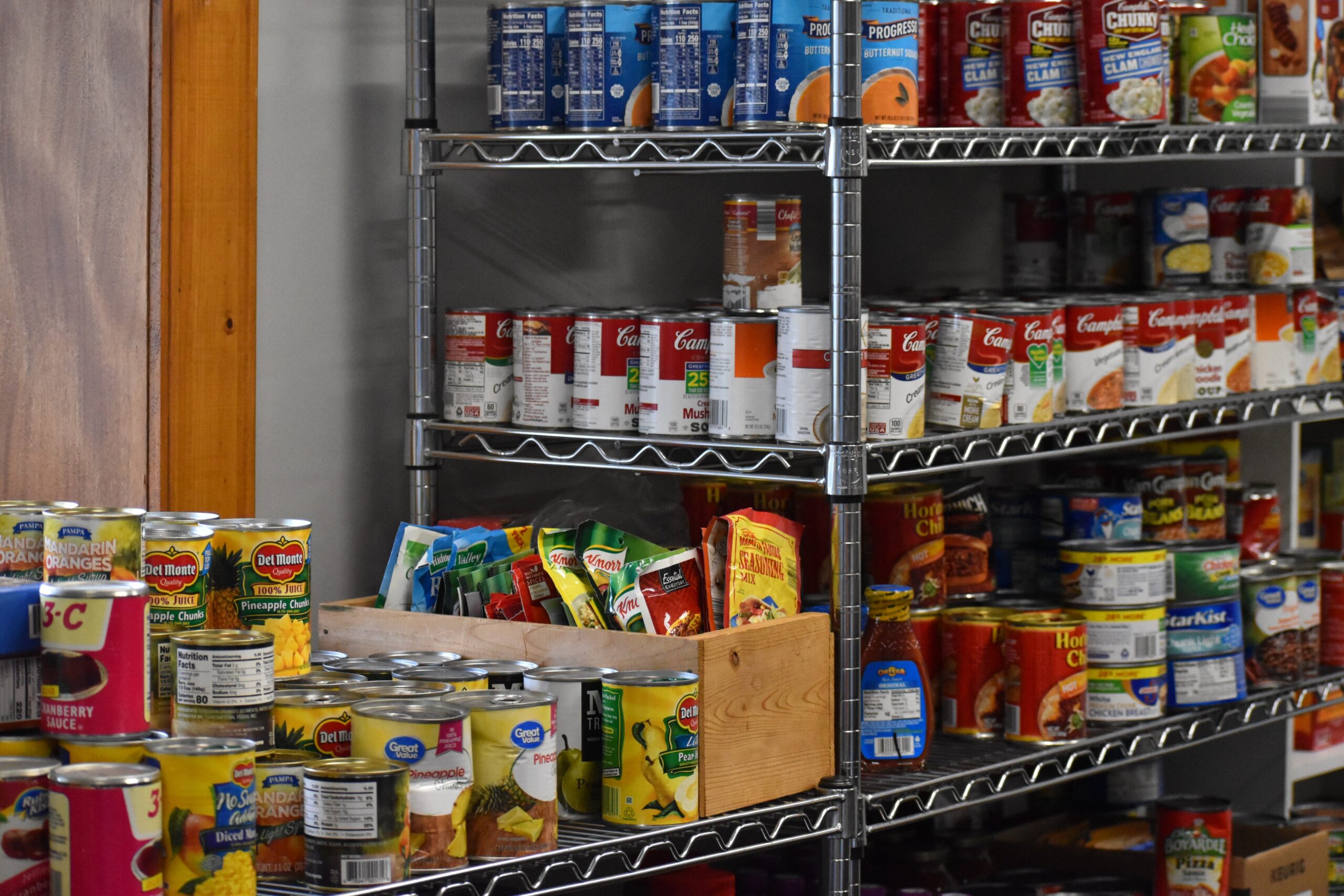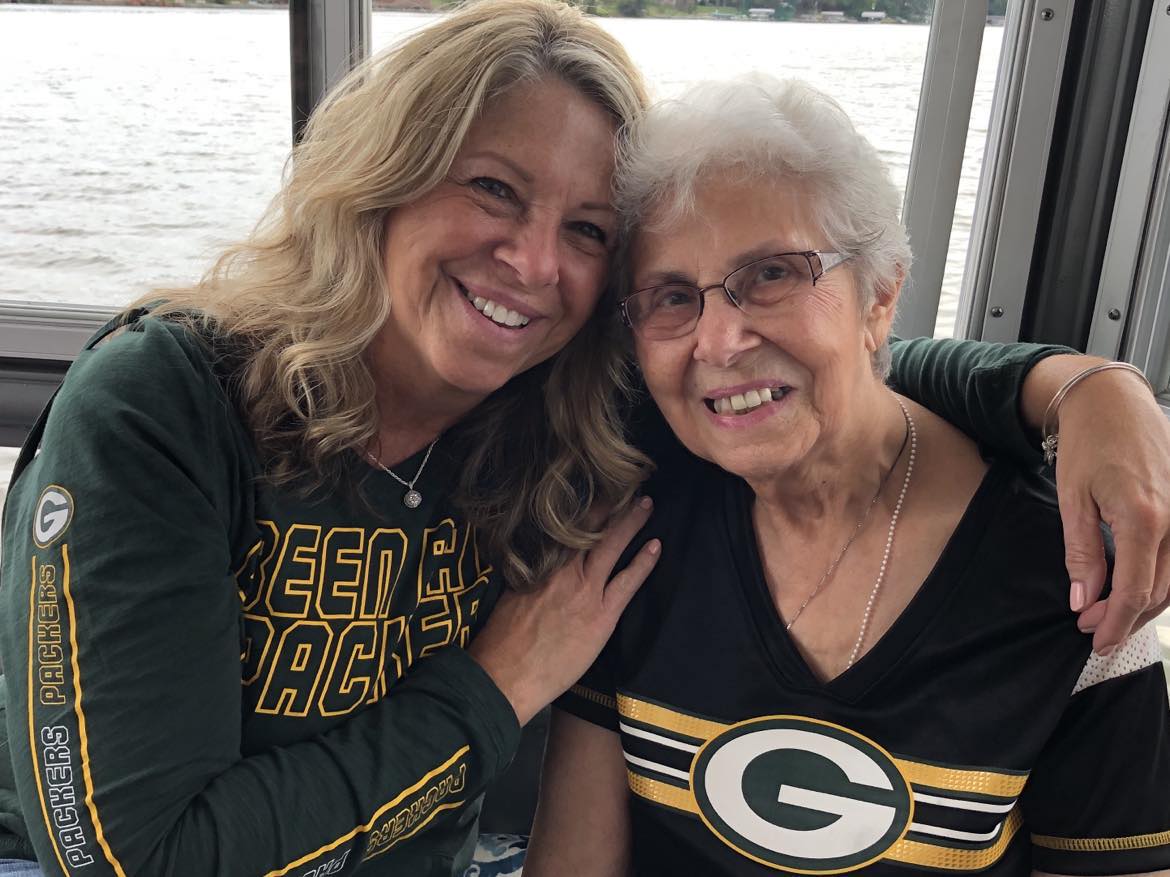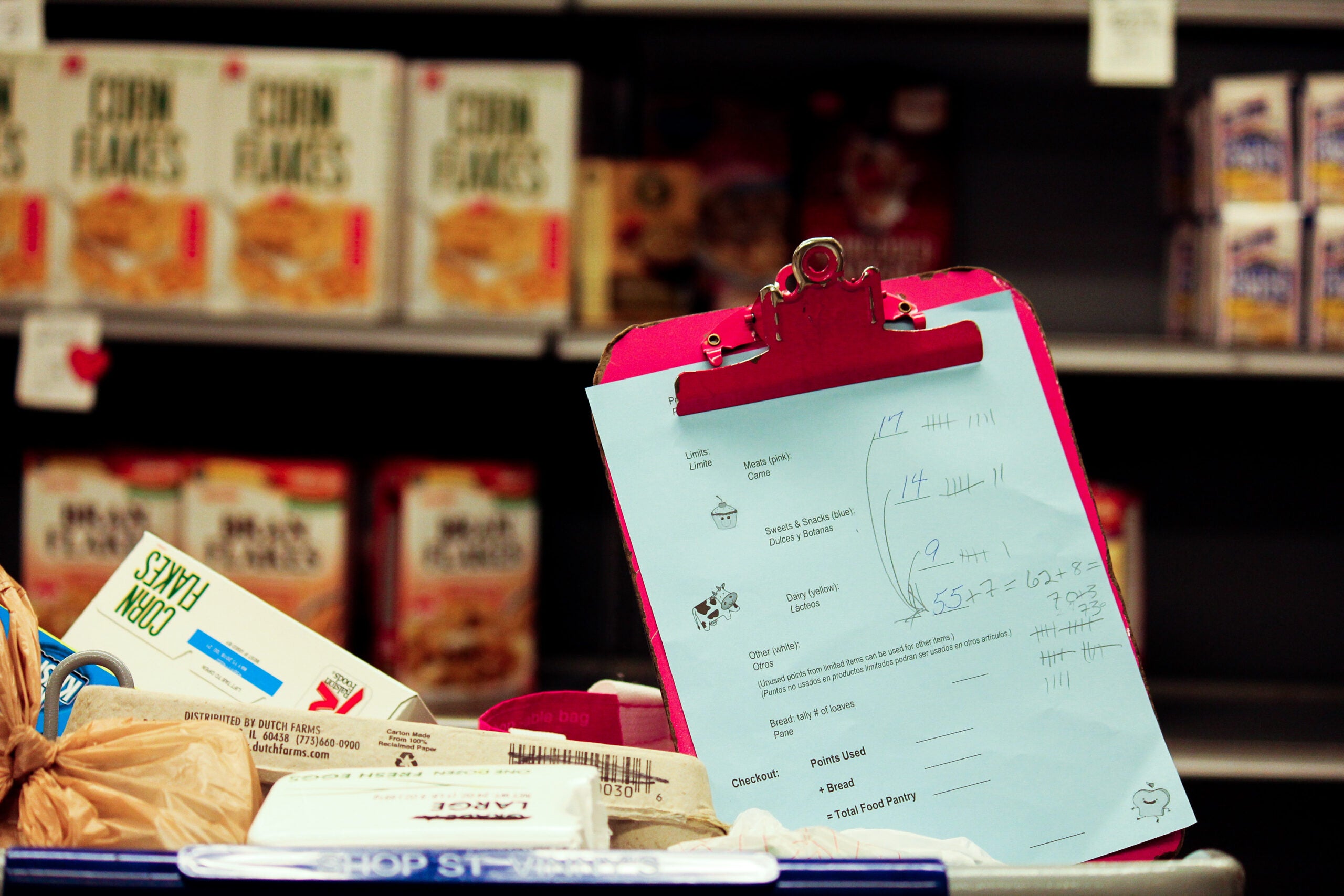One of the confessionals at St. Bernard Catholic Church in Abbotsford is filled nearly to the ceiling with boxes of dried beans, rice and sriracha sauce. There are several flats of cereal boxes in the confessional next door.
“Right now, the deal is, you come to confession, you get a box of cereal,” jokes the Rev. Tim Oudenhoven.
St. Bernard’s started hosting a weekly food pantry in 2020, and parts of the church have become overflow storage for dry goods. What started as a pandemic response serving 30 or 40 families has “mushroomed,” Oudenhoven said, to an operation serving 230 families per week and growing.
Stay informed on the latest news
Sign up for WPR’s email newsletter.
Abbotsford, a city of about 2,300 people in central Wisconsin, has become a center for Latino immigration. By official U.S. Census data, the city is now about 40 percent Hispanic. But most residents believe that count doesn’t capture hundreds more who have immigrated illegally or who’ve overstayed their visas. According to state data, the Abbotsford School District is about 62 percent Latino.
And recently, Oudenhoven said, the area has seen an increase in new arrivals from Central and South America, including Nicaragua and Venezuela, as people flee humanitarian crises there.
The clients for the pantry are about half Latino, half white, he said. They include families, retirees and single mothers.
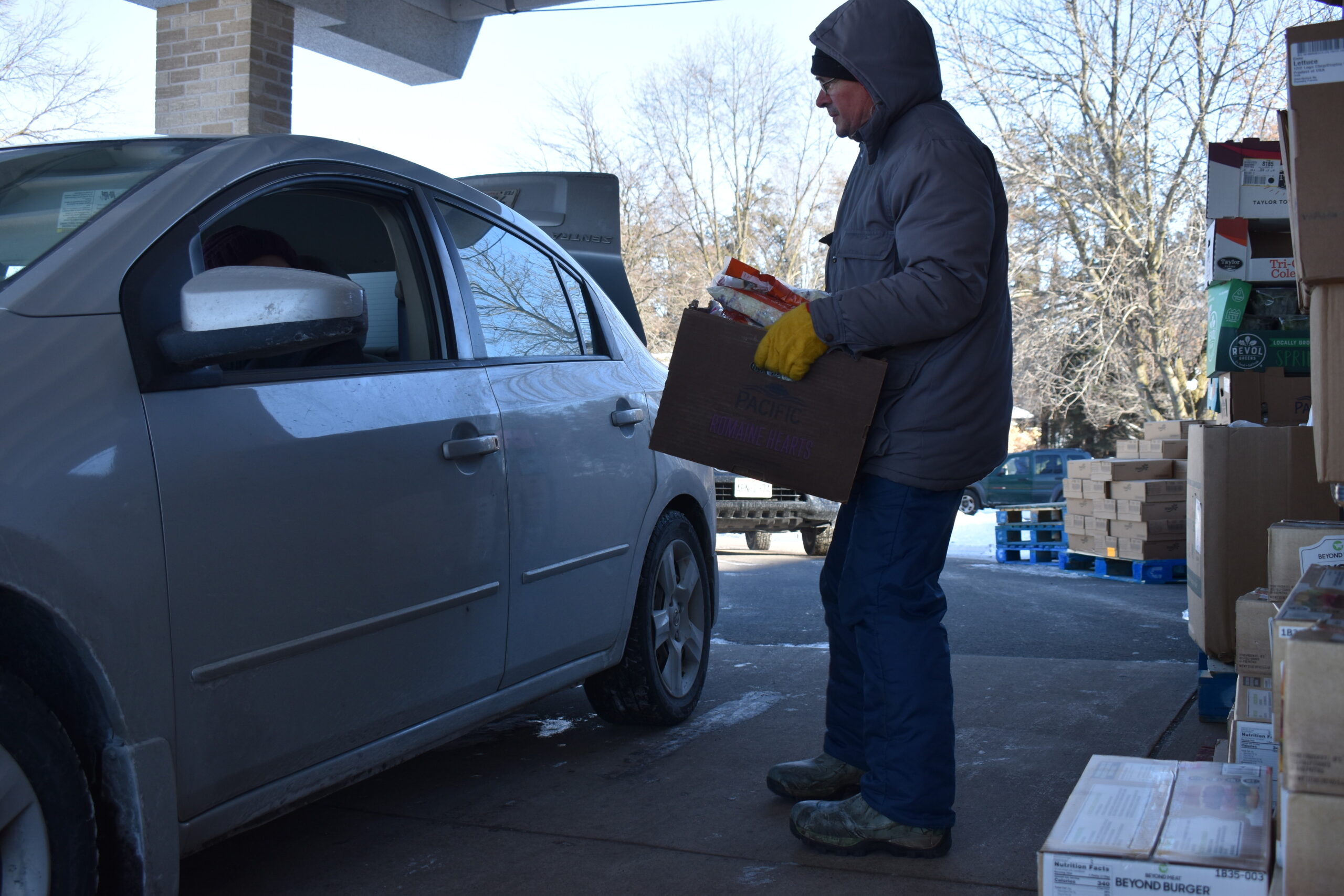
In the early pandemic, the pantry distributed the USDA food boxes that were instituted as emergency aid to farmers and families. But even as the economic effects of COVID-19 abated, the demand for food in the rural, central Wisconsin area has continued to grow. Oudenhoven said it has revealed a serious need in the region.
“When we started this up, I wasn’t thinking future plans,” he said. “I wasn’t thinking sustainability. I was just saying: ‘What can we do now?’”
Now, with the expiration this week of the pandemic boost to federal FoodShare benefits, food pantries across Wisconsin are bracing for demand to increase even more.
In Abbotsford, food pantry supporters are seeking new sources of funding and building new partnerships to ensure that the effort can continue to serve the community’s needs. Oudenhoven is storing several tons of food in the church — the cereal boxes in the confessional, bags of rice and canned goods off the building’s entrance. And food pantry staffers are already making plans to increase their offerings from two truckloads of perishables weekly to three.
For many working families, ‘there’s no wiggle room’
Even as unemployment rates in Wisconsin have been at or near record lows, food pantries have seen demand increase. Inflation has driven up the cost of groceries, and last year’s spike in gas prices was felt acutely by rural residents who routinely have to drive long distances.
For a lot of families, “maybe they have two parents who are working and they’re paying their bills, but there’s nothing left over at the end of the day,” said Suzanne Becker, executive director of Feed My People Food Bank of Eau Claire, which distributes food to 14 counties and partners with the St. Bernard pantry.
“There’s no wiggle room,” Becker said, which means outside shocks like price increases, a health crisis or a broken-down vehicle can leave the family’s finances in ruins. “We’ve seen all kinds of families finding themselves in need for the first time.”
The United Way coined the term Asset-Limited Income-Constrained Employed, or ALICE, for these households. Their earnings put them above the federal poverty line, but they may not be able to pay all of their family bills. Data from 2020, the most recent report, found 12 percent of households in Clark County lived in poverty, but another 30 percent were ALICE households. Abbotsford and the food pantry’s service area also includes western Marathon County. It had 7 percent of households living in poverty, and 22 percent above the poverty line but potentially struggling.
During the COVID-19 pandemic, Wisconsinites receiving FoodShare saw at least an additional $95 per month on top of their regular benefits. Congress voted in December to end that program. The additional funds expire Wednesday.
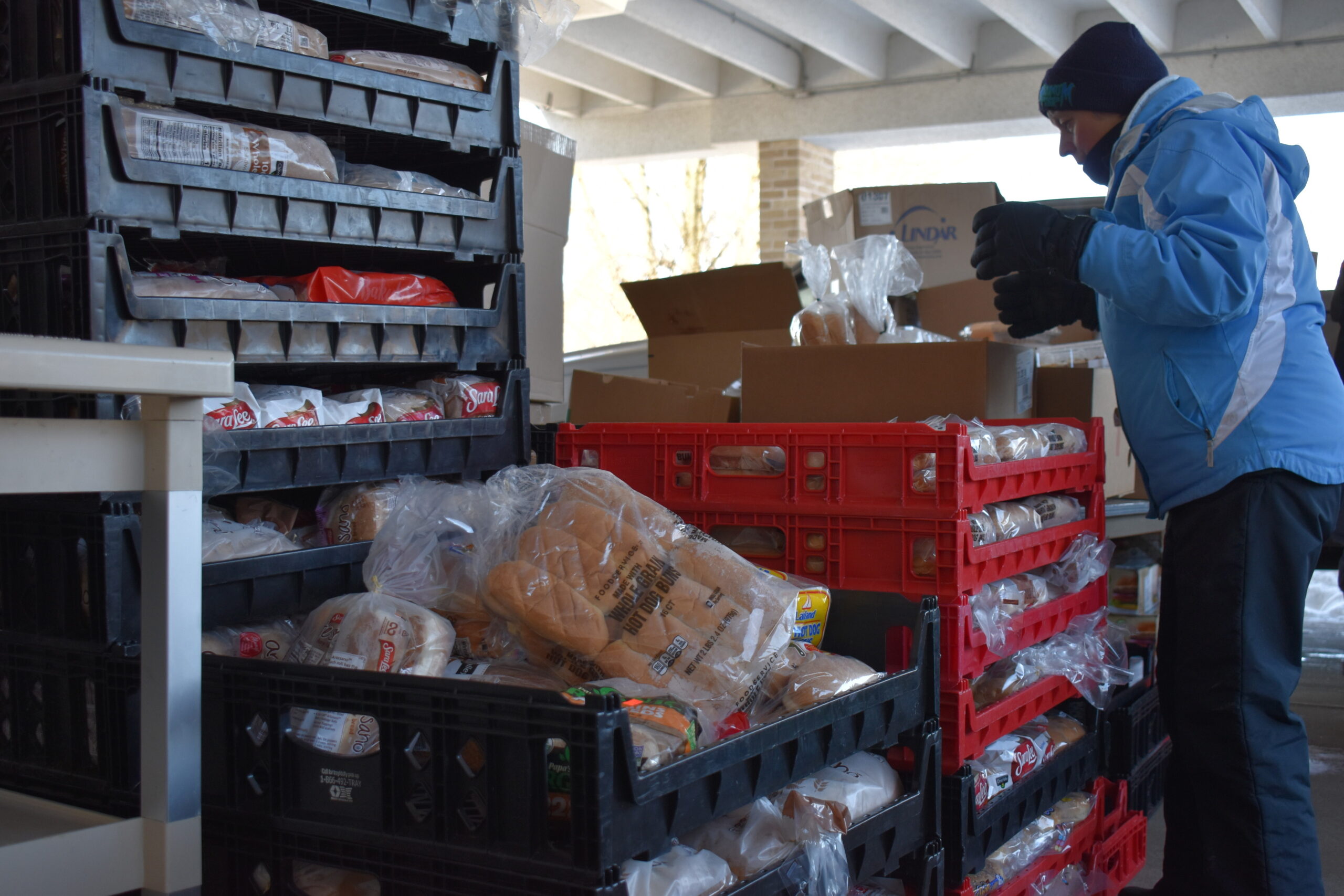
The Abbotsford pantry doesn’t require recipients to be enrolled in FoodShare or any other government assistance program. That’s intentional, Oudenhoven said, because the church and its collaborators want to ensure that anyone who needs help can receive it, without restrictions or bureaucratic hurdles that may affect eligibility for those assistance programs.
It’s also because many of the people the food pantry serves are immigrants who don’t have legal status in the U.S.
The Latino population of Abbotsford has grown in the last two decades, as immigrants have found work on central Wisconsin dairy farms and at the meatpacking plant Abbyland Foods, the city’s largest employer.
When Oudenhoven, 39, came to Abbotsford 12 years ago, he was very much on the outside of this community.
“It was very hard,” he said. “I started speaking pretty much no Spanish, and back then most of (the Latino community) didn’t speak any English. … A lot of people had just arrived at that point.”
Oudenhoven learned Spanish and began to lead the Spanish-language Mass for the parish. For a time, he was junior to another priest in the parish, and many in the congregation referred to Oudenhoven, who is white and from Michigan’s Upper Peninsula, as the “Mexican priest.”
Today, he heads the parish, where two of three Sunday services are in Spanish, a ratio that roughly corresponds to the two-thirds Latino makeup of the congregation.
“I speak more Spanish than English any day of the week,” Oudenhoven said.

Effort has expanded, but questions about its future remai
The growing need Oudenhoven has seen with the food pantry extends to more than food. Finding work, a place to live and getting access to services can be harder for Abbotsford’s immigrant community. That’s part of the reason Oudenhoven and the church have expanded the food pantry effort to one that provides a variety of social services. The pantry now partners with a local health clinic, a Hispanic outreach organization and social workers in the area. They call their combined effort the Abbotsford Area Collaborative Team.
For a time, the Family Health Center of Marshfield, a community health center, parked its mobile clinic near the food distribution site and provided primary care to those who needed it. In coming months, the center plans to open a permanent clinic site in the church’s basement.
Isis Vidal works with the Hmong and Hispanic Communication Network, known as H2N, which is part of the collaboration. It’s a Wausau-based group with a mission to connect central Wisconsin immigrant communities with health resources. Vidal and her colleague Norma Castro have been coming to Abbotsford, a drive of about 45 minutes from Wausau, every Thursday since shortly after St. Bernard’s food pantry started operating. They’ve talked to recipients about COVID-19 vaccinations, got them flu shots and helped them navigate other health care or transportation needs.
Vidal, who emigrated from Mexico with her husband more than two decades ago, said she relates to the disorienting feeling of being a new immigrant.
“I know how those people feel… when they are new in town and they don’t know who can help them,” Vidal said.
Those without legal status also have limited options for employment, Oudenhoven said.
“I’ve had people open up the (free newspaper to job ads) and say, ‘Look at all the jobs,’” he said. “And I say, ‘Which ones can you apply for if you don’t have papers? None of them.’”
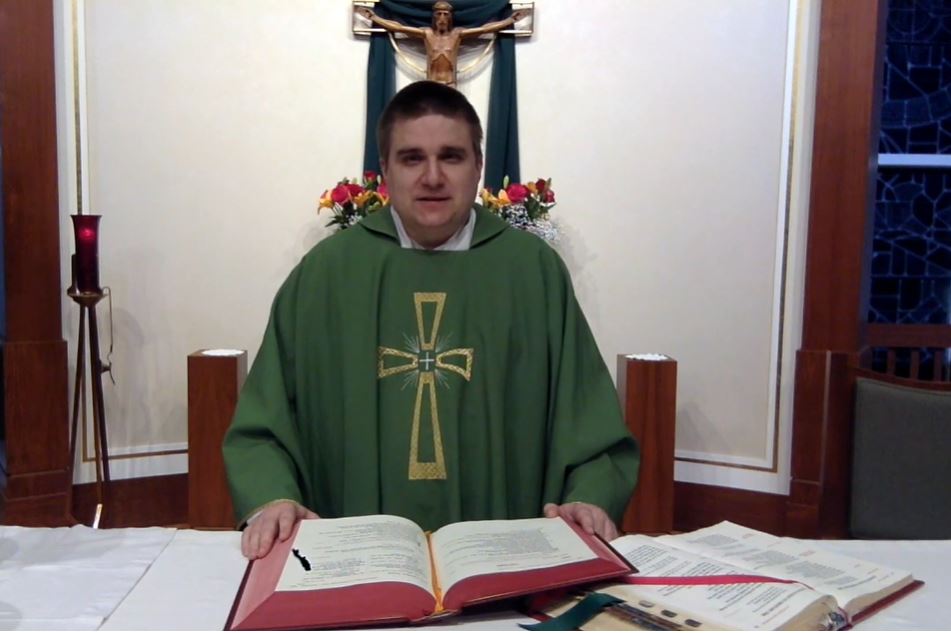
The pantry’s decision to forgo the paperwork that would come with being a government-funded program helps it reach more people — not just immigrants but also residents who are self-conscious about accepting food aid or reluctant to share their personal information. But it also means that funding for the program is uncertain.
In a February pamphlet published by the collaborative, Oudenhoven answered the question “What is the long-term plan?” by saying, “We do not know. We thought it would have ended by now, but the need is greater than we thought.” The pantry relies on private donations from the congregation and the community.
Oudenhoven said his long-term goal would be to set up a Hispanic community center that can function separately from St. Bernard’s. But he’s most focused on filling the need he sees in his community today.
“I do believe there was a need that we just didn’t notice before,” he said. “It was an unheard need. And that’s the problem.”
On a Thursday in early February, the temperature in Abbotsford had dropped to around 10 degrees. An hour before the pantry opened, cars were lining up around the block. In front of the church, volunteers had unloaded the truckloads of produce, meat and other foods and prepared for distribution.
One of the people waiting in line for food was a newly arrived immigrant. As Oudenhoven checked him in, they talked about the weather. The man wore a hooded sweatshirt; he didn’t have a winter coat. No problem, Oudenhoven said. After he got through the line for food, the man could park in the church parking lot and proceed to the basement, where he could choose one from the pile of donated coats.
“Llevalo que necesita,” Oudenhoven told the man. “Todas para ustedes” — take what you need, they’re all for you.
Wisconsin Public Radio, © Copyright 2025, Board of Regents of the University of Wisconsin System and Wisconsin Educational Communications Board.

